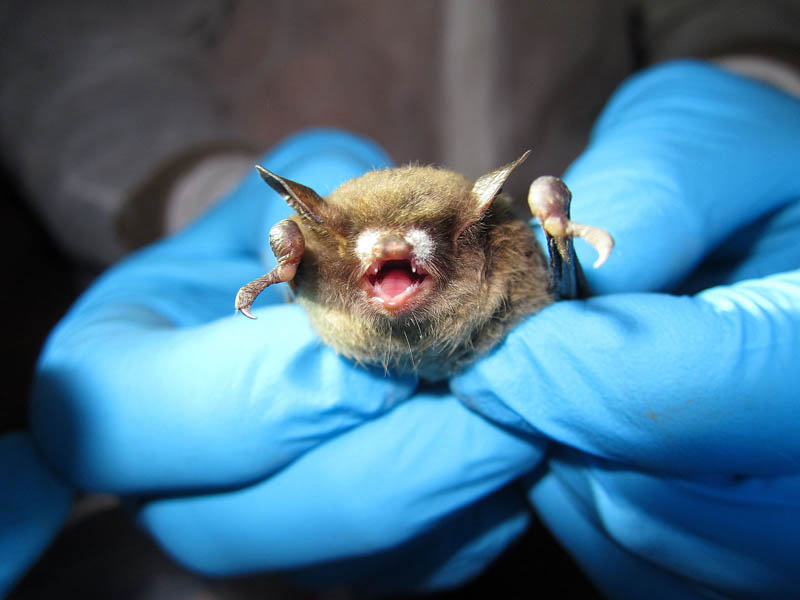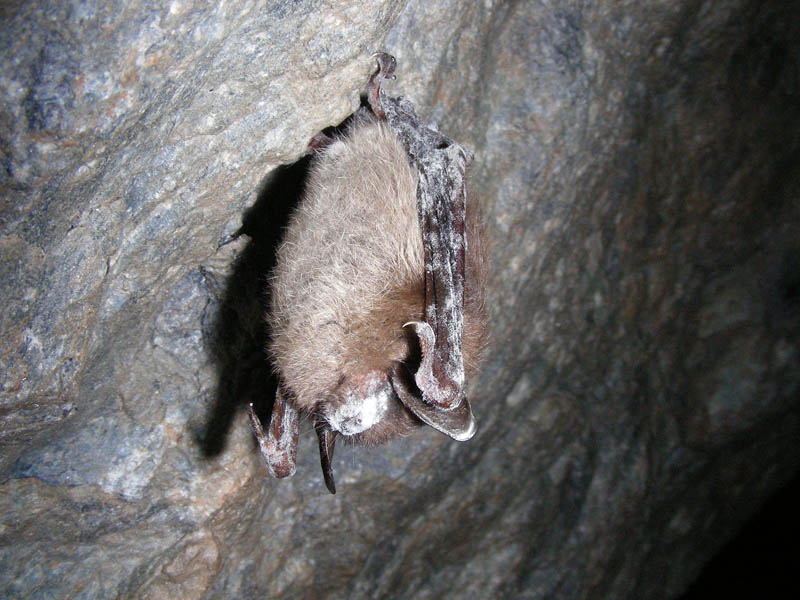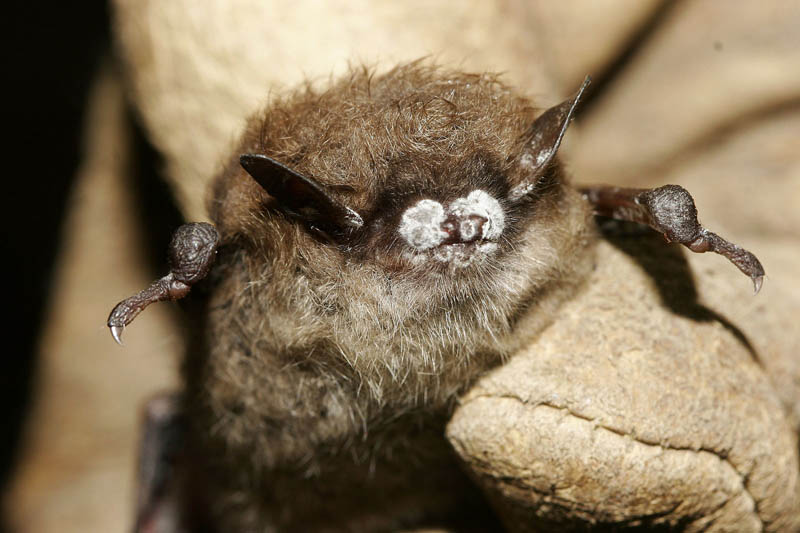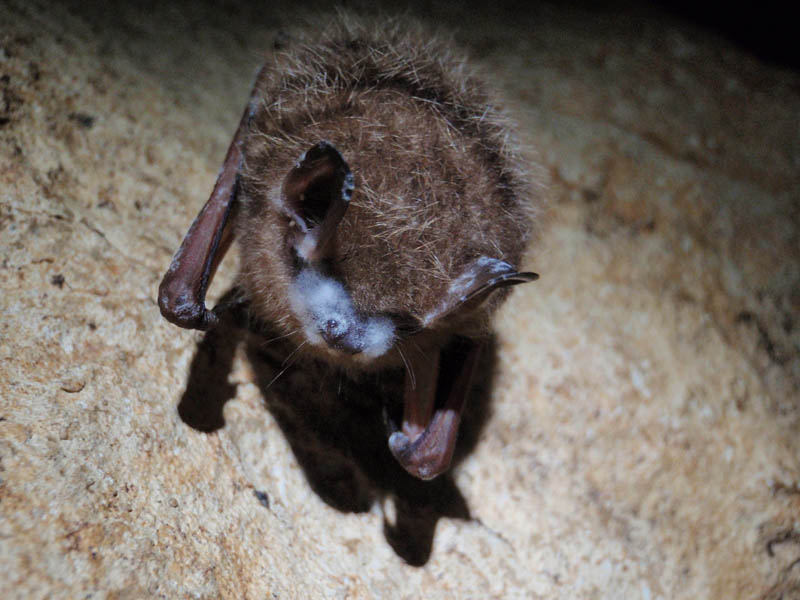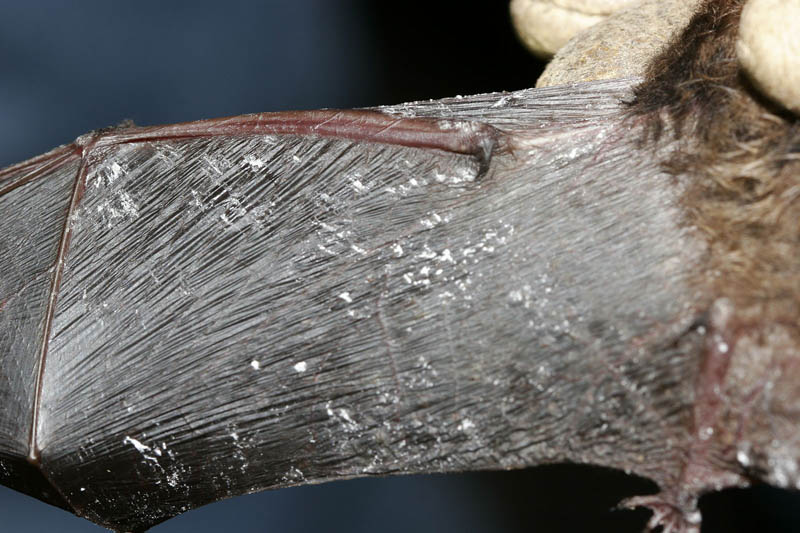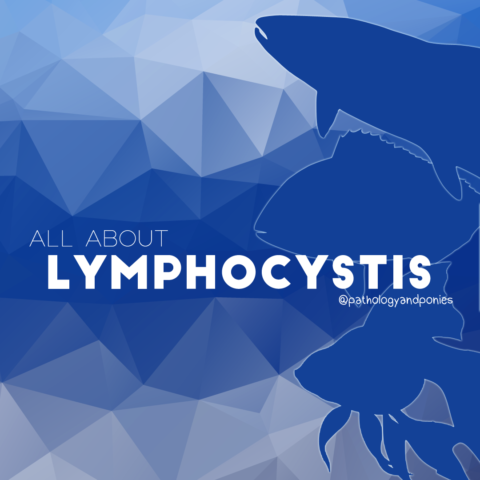Happy Halloween! Today’s path rounds are on 𝐰𝐡𝐢𝐭𝐞 𝐧𝐨𝐬𝐞 𝐬𝐲𝐧𝐝𝐫𝐨𝐦𝐞!
𝐖𝐡𝐚𝐭 𝐢𝐬 𝐢𝐭?
𝐖𝐡𝐢𝐭𝐞 𝐧𝐨𝐬𝐞 𝐬𝐲𝐧𝐝𝐫𝐨𝐦𝐞 is a fungal infection with an extremely high mortality rate. In fact, this infection has killed an estimated 6 million bats in North America, which might be the largest mammalian wildlife mortality event in recorded history. Poor bats ![]()
𝐖𝐡𝐨 𝐠𝐞𝐭𝐬 𝐢𝐭?
Bat species in 𝐍𝐨𝐫𝐭𝐡 𝐀𝐦𝐞𝐫𝐢𝐜𝐚 predominantly get this disease. The fungus is thought to be native to Europe and Asia, and bats in these areas are thought to be resistant to the fungus. Because bats in North America have not evolved with this fungus, they are highly susceptible to the disease. The fungus was first discovered in New York in 2006, and since then it has spread widely.
𝐖𝐡𝐚𝐭 𝐜𝐚𝐮𝐬𝐞𝐬 𝐢𝐭?
The fungus that causes this disease is called 𝐏𝐬𝐞𝐮𝐝𝐨𝐠𝐲𝐦𝐧𝐨𝐚𝐬𝐜𝐮𝐬 𝐝𝐞𝐬𝐭𝐫𝐮𝐜𝐭𝐚𝐧𝐬. It is considered a 𝐬𝐚𝐩𝐫𝐨𝐩𝐡𝐲𝐭𝐢𝐜 (soil-dwelling) fungus, which means it does not need to be within an animal to survive and persist. This feature of the fungus has allowed it to survive in the caves where bats live, and increased its ability to “hitch a ride” on humans, animals, insects, etc to transfer to new caves and infect new bat populations.
𝐖𝐡𝐲 𝐢𝐬 𝐭𝐡𝐢𝐬 𝐚 𝐩𝐫𝐨𝐛𝐥𝐞𝐦?
The fungus causes fungal growths on the muzzle, ears and wings of hibernating bats. This infection is thought to increase the metabolism of the bats while they hibernate, causing them to burn through their fat stores earlier than they normally would. This leads to the bats waking up from hibernation too early, typically in the middle of winter when there is no insect prey available. Ultimately, these bats will die from a combination of starvation and other disease processes that the fungus can cause.
𝐇𝐨𝐰 𝐢𝐬 𝐢𝐭 𝐝𝐢𝐚𝐠𝐧𝐨𝐬𝐞𝐝?
Typically these bats are found dead, so the main way to diagnose the disease is via 𝐟𝐮𝐧𝐠𝐚𝐥 𝐜𝐮𝐥𝐭𝐮𝐫𝐞 or looking at tissue under the microscope to visualize the fungus.
𝐇𝐨𝐰 𝐢𝐬 𝐢𝐭 𝐩𝐫𝐞𝐯𝐞𝐧𝐭𝐞𝐝?
The best method of prevention is leaving bats alone! Don’t enter their caves, and do not touch any roosting areas. If you do enter a cave, thorough decontamination of your shoes and equipment is vital to preventing the spread of the disease, especially if you will be entering multiple caves with the same equipment.
𝐏𝐡𝐨𝐭𝐨𝐬
1-4) Bats with white nose fungus on their noses.
5) A bat with fungal growths on its wing.
𝐒𝐨𝐮𝐫𝐜𝐞𝐬
Terio, KA, McAloose, D, St. Leger, J. Pathology of Wildlife and Zoo Animals. 2018.
Photos 1-5 © Wikimedia Commons contributors Moriarty, von Linden, NPS, Taylor licensed under CC 2.0 Generic.

